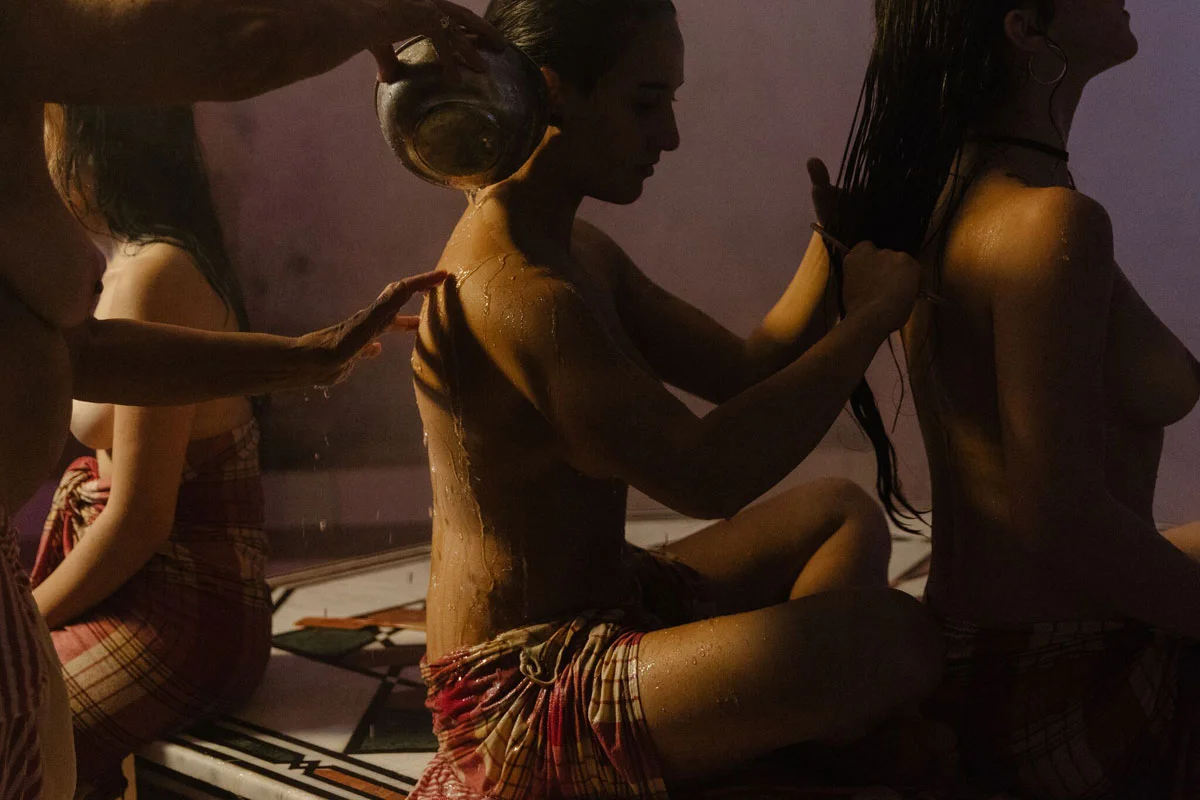Yumna Al-Arashi – An Intimate Portrayal of the Hammam
Photography: Yumna Al-Arashi
Words: Darcie Imbert
Yumna Al-Arashi is a female photographer resculpting the parameters of understanding that surround modern Muslim women with her latest project entitled “Shedding Skin”. Aesthetically, the series of photographs are ethereal and glazed with a dewy glow of rich golden tones. But this collection penetrates at a much deeper level as they provide a glimpse in to the Middle Eastern tradition that is doused in mystery. This beautifully intimate portrayal of the hammam captures the richness and universality of womanhood, an identity that is unabashed by difference in religion or culture. Al-Arashi strips away stigma and peels back layers of deeply engrained prejudice against Muslim women as the unknown other. Muslim women have long been constructed as the voiceless victims of oppression but Al-Arashi is one of many who are opening a window into the Arab experience.
Most recently, Nike, arguably the most influential sports brand worldwide, released a new advertisement featuring Hijabi athletes, which preceded the release of their new line of modest sportswear. The Shedding Skin shoot was entirely funded by British online fashion and beauty store ASOS, as part of the company’s talent program which sponsors emerging artists whose work dissects the notion of social justice.
Al- Arashi commented on her own work “I’ve made an effort to create a body of work that truly represents the Muslim woman outside of being oppressed as I go along in time. There’s a huge importance for me to take each story that I do and create a larger story of understanding the Muslim woman. I want people to normalise this – they take up just as much space as anybody else and It’s really important to show that, and I’m really excited to be doing that with ASOS.”
The series of imagery reclaims the space for Muslim women that has been eroded over years of misunderstanding that has prompted widespread misrepresentation. The images reinforce total bodily autonomy of women in a world with competing expectations from the West, the East, tradition, orientalism and family. The hammam represents a sanctuary from the pressure of these expectations, and a retreat that solidifies their existence as a woman first and foremost, aside from being ‘the mother’, ‘the sister’ and ‘the wife’. Al-Arashi effectively paints a portrait of female solidarity,
““in this space your currency of clothing and beauty is not accepted, its useless here and I feel free”,”
speaking powerful words over the warm lull of the hammam, “my womanhood is all I have left”. The paradisiacal photographs reject the age-old suppression of female sexuality that casts women as sinners and temptresses. Al-Arashi gracefully liberates her subjects from the hyper-sexualisation that is so apparent in todays society, unapologetically revealing the realities of womanhood.
The Shedding Skin project is an ode to the Renaissance past, symbolizing the timelessness of the hammam in the Middle East region. Whilst the tradition of public baths, popularized under the Romans, ceased to exist throughout the West they continued to gain momentum in the eastern Mediterranean as a meeting place where people could socialize and relax. In an interview Al Arashi notes “I remember growing up, seeing how these scenes were depicted in art and that was always powerful. Why don’t we ever see this anymore? Why is this a closed off space to the rest of the World?”. She emphasizes the humbling nature of the hammam,
““It’s not about how you’re sitting or how many rolls you have or how hairy your legs are, there’s no difference between pretty or ugly. They’re places where people just laugh and talk about everything. It’s really beautiful, and really normalizing”.”
This young photographer is challenging the typical representation of Muslim women in society and subtly protesting against futile hostility based of gender, religion and culture. Yumna Al-Arashi’s work draws attention to the fact that prior to behavioral modernity, women and men, muslims and aethiests were all humans alike – an important realization in an increasingly divisive world.










